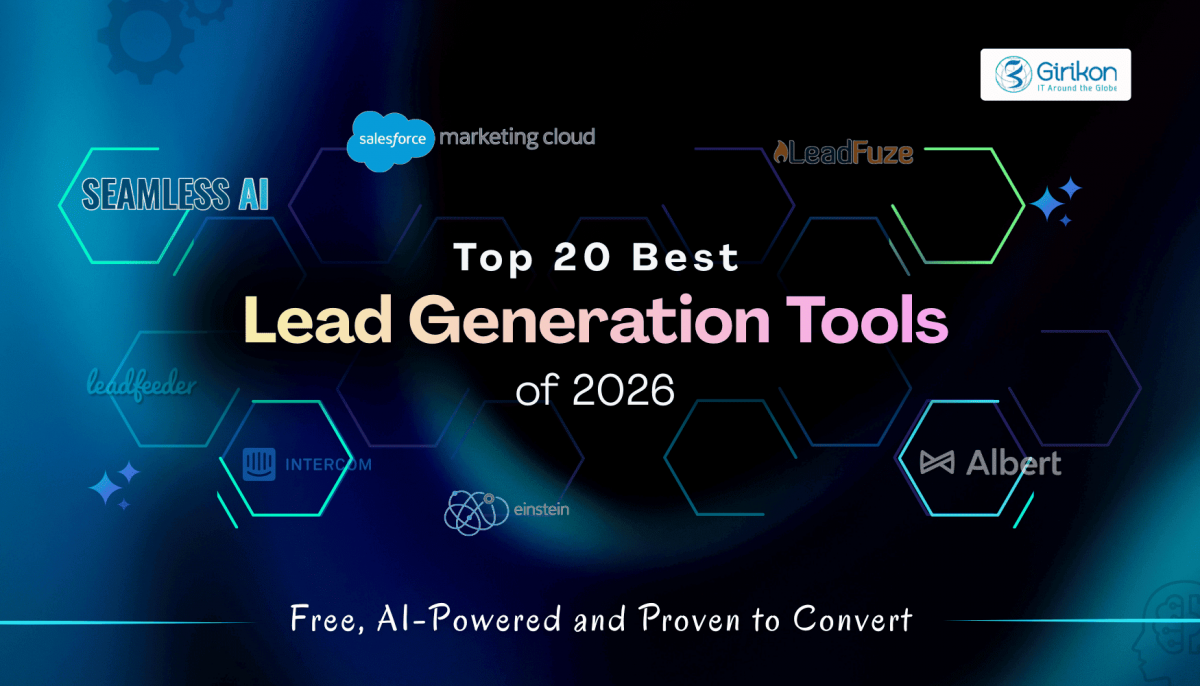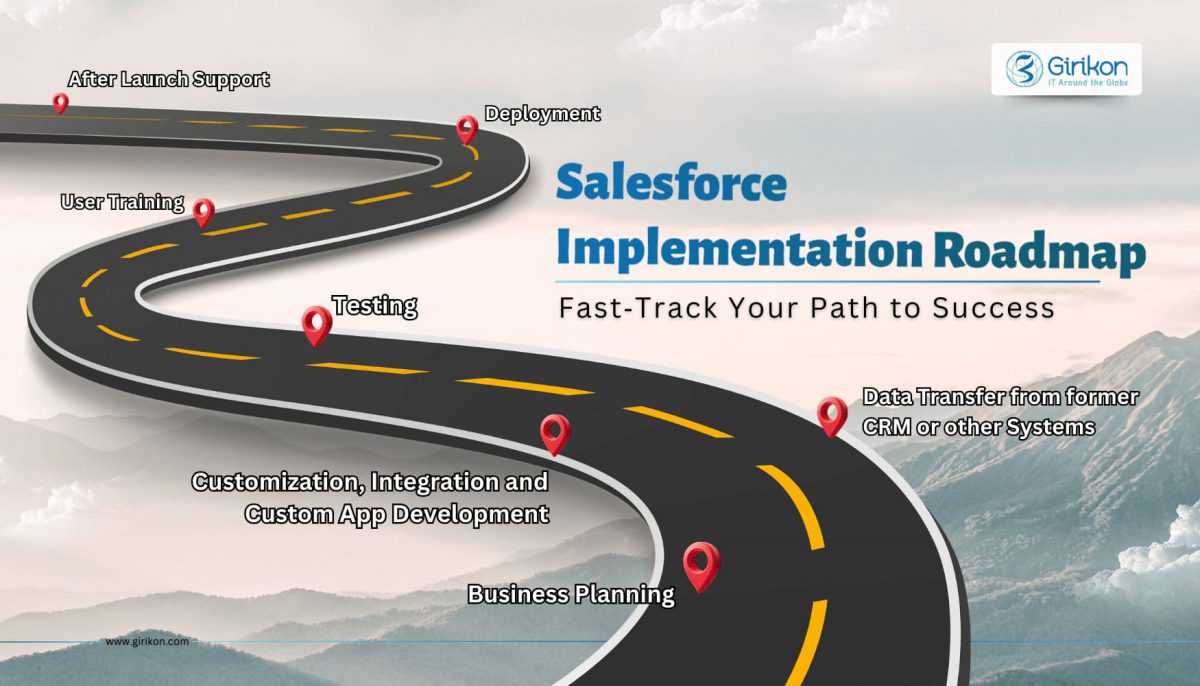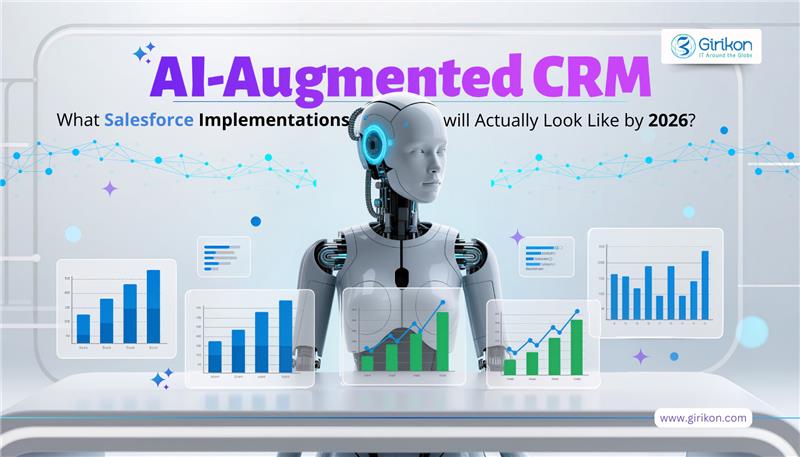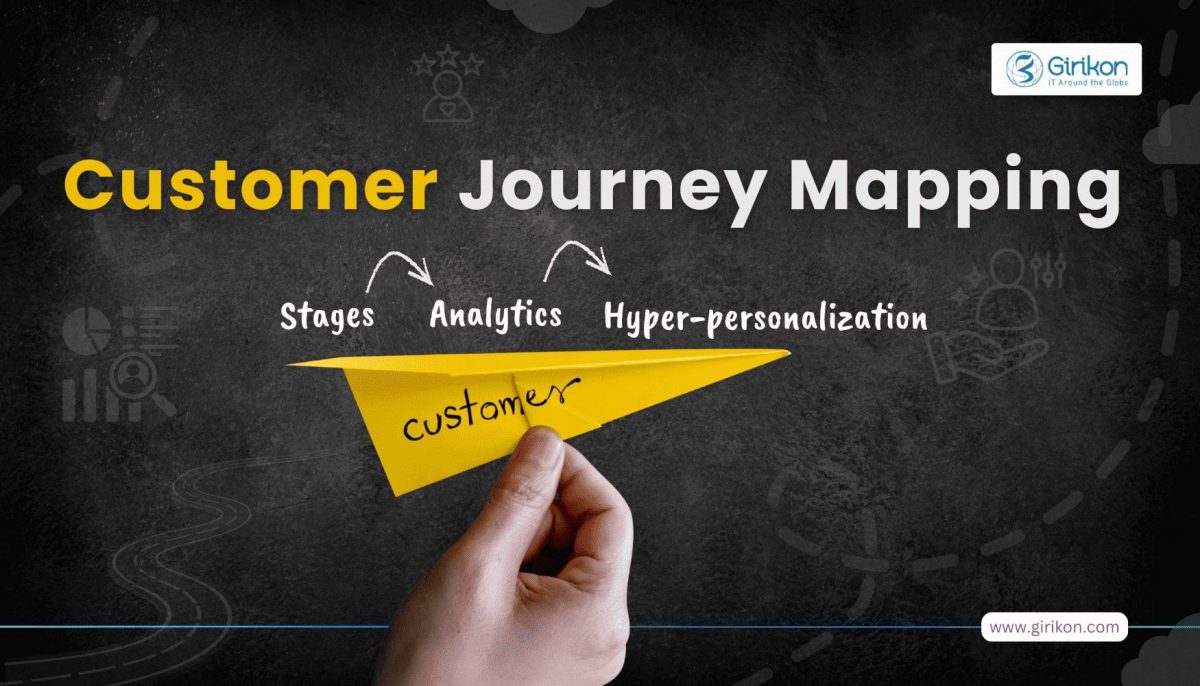In today’s digital era, business sustenance depends upon managing superior customer relationships and this isn’t possible without a robust CRM (Customer Relationship Management) system. However, a bug-ridden or improperly implemented system can negatively impact how you comprehend customer behavior and how you cater to them, ultimately affecting the revenue. To ensure your CRM system is functioning smoothly, it’s vital to thoroughly test it. This is where a CRM testing company comes into the picture.
A reputed service provider offers quality testing services that consider automated testing frameworks along with an innovative approach to ensure that your system is flawless by addressing and fixing the issues that bug the system.
What is the Need for CRM Testing?
CRM systems are a strategic asset for forward-looking organizations that focus on streamlining their business operations, managing customer life cycles, and enhancing customer satisfaction. While an improperly implemented system fails to provide the desired performance and affects the revenues, brand value, as well as brand loyalty, an effective and well-implemented CRM system can help in deriving valuable customer insights that can help improve customer loyalty.
CRM testing is not about testing the product but is about testing a customer’s ability to use the product. Testing the CRM structure ensures improved customer relations. In other words, you are validating CRM’s documentation, reporting, and data evaluation. It works well over all the channels and inspires by system integration and creating other channels.
What is the Need for a CRM Testing Service Provider?
Organizations using CRM applications usually have to deal with issues including complex interfaces, analytics errors, and long waiting times. This might hinder business performance, which can make customer management more difficult. By partnering with an experienced CRM testing service provider, it is possible to identify and resolve any such underlying issues while improving its capabilities. Some of the compelling reasons that make CRM testing crucial are mentioned below:
It is possible to augment the overall functionality of your CRM application through CRM testing as it tests all the essential aspects of a CRM application.
CRM testing helps in the effective integration of a CRM application with other systems. This helps in easy data management and sharing.
The overall quality of a CRM can be enhanced by availing CRM testing services from a reputed service provider.
CRM testing can help in identifying and fixing bugs and defects that impact the performance of a CRM. This ensures the smooth running of the CRM application, which results in maintaining better customer relationships.
CRM testing does away with all the performance issues and ensures a flawless application that can help improve the brand value of a business.
The Bottom Line:
A robust CRM system has become a crucial aspect of every organization. An improperly CRM platform can directly affect your customer relationships and, ultimately your revenue. To ensure that you have a properly built CRM in place, it is crucial to test the application to ensure that it is doing exactly what it is meant to.
Several form builder options and software available allow users to create Forms that allow users to work on different fields and manage different features. Salesforce Forms help users to communicate with Salesforce while creating and saving records with Salesforce Integration. These forms help users to eliminate paperwork while providing Salesforce integration with real-time access across Salesforce Objects. Salesforce Forms are a data collection tool that allows for a reliable way to access accurate records that is free of any discrepancies, which is of utmost value.
With a Salesforce Form Generator, it is easy to build forms that can update or create records in Salesforce. With a Form builder App, it is possible to map the data you collect whether it is a lead, contact, case, or opportunity, irrespective of the data structure or hierarchy in Salesforce that too securely.
Salesforce Forms is a 100% native Salesforce form builder and it enables prefilling forms dynamically while generating and updating records. With Salesforce Forms, it is possible to optimize their business processes while improving efficiency. Salesforce Forms can be leveraged by businesses across various industries and are a practical option for those who wish to make the most of the true potential of Salesforce.
One such fully automated and efficient no-code solution to manage real-time data is the Salesforce Form Builder App. Besides enabling automation of your data flow that too without writing any line of code, the robust App has a fault-tolerant architecture that ensures that data is secure and consistent:
Fully Managed: Being a fully automated platform, this App doesn’t require any management and maintenance.
Data Transformation: Since the App has a simple interface, it is possible to modify, perfect and enrich the data you wish to transfer.
Real-Time: The App enables real-time data migration so the data is always ready for analysis.
Schema Management: The schema of the incoming data is detected by the App and maps it to the schema destination.
Scalable Infrastructure: The App has in-built integrations for numerous sources that can help users scale data infrastructure as and when required.
With Live Monitoring it is possible to get a one-stop view to watch the activities that occur within data pipelines.
Live Support: The Form builder App offers round-the-clock support.
Creating online forms and integrating them with Salesforce that too without any coding and simply using drag & drop functionality is easy. You may either opt to build it from scratch or choose a template from an extensive gallery of pre-built form templates
Managing superior customer relationships is no longer a choice but has become a necessity in today’s era. This is easier said than done as businesses are engaged in multiple activities including but not limited to managing multiple business processes. Salesforce – a robust cloud-based CRM has become one of the most popular and widely adopted CRM platforms across the globe. The innovative platform is endowed with multiple features, functionalities, and components that can be leveraged by businesses to resolve their business issues.
As an entrepreneur, if you are looking to scale up your business, you must work on streamlining your business processes while ensuring operational efficiency. With its wide array of features and functionalities, Salesforce can be leveraged by organizations to manage their processes efficiently. However, suppose your Salesforce solution fails to address your unique business needs. You can either turn to a ready-made App from App Exchange or opt for custom Salesforce Apps to achieve the desired functionality. Although AppExchange is an easy way to get the desired functionality, a custom Salesforce app is undoubtedly a better option. It’s better to seek Salesforce support from a reliable service provider to learn more about the custom Salesforce App.
Listed below are some of the compelling reasons why the Salesforce Custom App is preferred over an AppExchange App:
Cost-effective: Getting a custom App developed is a more cost-effective option than buying one from AppExchange, especially with multiple users and a constrained budget. This is because AppExchange Apps require paying monthly subscription fees. On the other hand, a one-time payment for development, testing, and deployment is made irrespective of the number of users. However, before you choose, make sure you compare your subscription fees with what a developer or a test engineer would charge for one-time work.
Covers Industry-specific Business Processes: If you are looking to integrate some industry-specific processes into your solution, creating a custom App with specific techniques per your unique needs is a better option. AppExchange apps, on the other hand, can help add universal functionality, for instance, one that allows clients to sign contracts sent in their inbox from Salesforce.
Allows Integration of Salesforce with niche software products: To get access to certain marketing or designing materials, you may require a custom integration App for integrating your Salesforce solution to an online platform. AppExchange Apps, on the other hand, has several ready-made integration applications for connecting that can be used to integrate your Salesforce solution to a third-party system.
Additional Scope for Customization: When you opt for a custom-developed App, you leave the scope for tailoring your application in the future due to a change in business process or an increasing number of App users. On the other hand, an AppExchange App offers no such guarantee or assurance for modification in the future.
How to Manage Your Customization Project?
It is essential to organize the customization process to get your customized Salesforce solution aligned with your business needs. Although Salesforce customization isn't rocket science, it may require extra effort than anticipated. By following the sequence of the steps mentioned below, your chances of success will increase:
Seeking Input of End-user: It is crucial to seek your employees' feedback regarding the CRM challenges they might be facing, the features they consider useful, and the ones they are missing out on to comprehend the scope of a future customization project. This helps you figure out the functionality gaps that require elimination.
Engaging a CRM Manager: Make sure you appoint an experienced and qualified CRM manager who can help define the scope of customization, plan the customization process, and provide custom features besides managing the ongoing support to a tailored solution.
Choosing the Right cooperation model: It is essential to define the scope of your project and your business requirement before selecting the right cooperation model. You have two options, i.e., an FP (Fixed Price) contract, which agrees with a one-time delivery of custom features with fixed scope, and the T&M (Time and Materials) contract.
Hiring the Right Salesforce Services Provider: Choosing a Salesforce service provider with thorough consulting and development skills is essential. While the consulting skills are vital for detailing the effective ways of addressing your business challenges, good development skills are required to make Salesforce solutions work just as needed.
Keeping Costs under Check: To check the cost involved in customization, you should take a reasonable approach to customization by prioritizing custom features that are sufficient to meet your business needs while doing away with the need for excessive code-based customizations.
A quick wrap-up:
Salesforce customization is a practical way of making your Salesforce CRM a profitable sales and customer service tool that can curb the concerns associated with poor user adoption. To ensure your customization process is a success, make sure you note the aforementioned best practices. If you are looking for an app designed specifically to meet your business needs, investing in a cost-effective and custom-developed Salesforce App is better. Consider partnering with one of the best Salesforce App Development Companies to get the most out of your investment. By developing a custom-developed App, organizations can enjoy the business process and operational efficiency.
Salesforce – a cloud-based CRM has a record of being the most widely adopted CRM platform by businesses of different sizes and domains. With its wide array of features and functionalities, Salesforce has helped businesses achieve their business goals. Salesforce has helped businesses supercharge their selling process by augmenting collaboration, creating personalized experiences, and removing data silos. Like any other sector, Salesforce has revolutionized the healthcare sector by ensuring better collaboration among health care teams, augmenting patient-provider relationships, and eventually attaining enhanced health outcomes.
The Salesforce Health Cloud released in 2016 has exhibited several advantages for the healthcare sector. To know more about Salesforce and its benefits, it makes sense to partner with one of the best Salesforce consultants. Let's explore some of them:
Get a Complete View of Patients: It is possible to get a clear picture of every individual's profile, including their data (non-clinical and clinical), communications, demographics, and other essential information from claims system, EHR, and more from a central location.
Empower Patients: This cloud solution empowers patients and healthcare providers to track the progress of health goals. It is possible to connect in real-time to address patients' queries or family members' queries from a single device.
Provide Quicker Personalized Care: With this cloud solution, it is possible to monitor cases and prioritize tasks based on instant needs and degree of importance. Apart from this, it is possible to section inhabitants in terms of demographics, risk, and other parameters while collaborating across the entire network of care providers while setting reminders for patient follow-up.
Enhance EHR: Since it is possible to access the right data at the right time, earning patients' trust becomes easy. Health Cloud enables users to unravel EHR systems and integrate apps securely and flexibly.
Why Should Healthcare providers use Salesforce?
Connect Disparate Data Sources: Removing data siloes is what Salesforce is known for. An average system uses multiple systems such as EHR, Insurance claims system, billing information, lab reports, etc. This wealth of data is scattered across several systems and therefore isn't very useful. By using APIs, all types of data can be integrated securely with Salesforce. Besides this, tools like Mulesoft Accelerator reduces the burden on IT teams. By efficiently bringing together disparate patient data in a single place, healthcare providers are empowered to make better decisions and spend more time on patient care.
Make Intelligent Use of Data: Salesforce can be leveraged to improve health outcomes by using its analytical capabilities on data. Tools like Tableau, formerly known as Einstein Analytics, provides healthcare providers with actionable insights so that patient need can be proactively fulfilled by anticipating their needs. It is also possible to identify high-risk patients via risk stratification to get enrolled in the right health care management program. In other words, Salesforce empowers healthcare providers to make data-driven decisions, ultimately leading to greater patient-provider satisfaction.
Collaboration of Care Team: Salesforce empowers healthcare providers to create a team that would include members of the patient care community, including physicians, household caregivers, or any one part of the healthcare journey. This becomes possible as Salesforce Health cloud develops on the capabilities of the service cloud. Individuals can assign tasks, send messages from any device, or view care management plans based on their team position. In short, it is a win-win situation for patients and providers.
Personalized Experiences: Consumers today expect personalized experiences across their journey with a brand. With Salesforce, it is possible to personalize every step of a customer's healthcare journey. Contact center agents can offer precise and tailor-made answers to patient queries as it is easy to access relevant information from visual care timelines and patient data cards. By consolidating clinical and non-clinical data in a single place, personalized care plans can be created. Besides this, healthcare providers can also address specific requirements of patients even before patients bring them up.
Moreover, based on patient preference, patient communication can be handled through calls, messages, or an online Salesforce portal. The innumerable opportunities of personalization offered by Salesforce can deepen patient-provider relationships, build trust and lead to better health outcomes.
Data Security: For healthcare organizations, data security is of utmost significance. Breach in data security will not just put patient safety at stake but can cost millions. Salesforce allows organizations to stay in control of their data by staying HIPAA and HITRUST compliant. Healthcare organizations can ensure that electronically protected health information (ePHI) is encrypted and can be accessed only by authorized users using Health cloud associated with Salesforce Shield. Irrespective of the restricting nature of the regulatory guidelines, Salesforce paves the way for advancement. Healthcare companies can pick from the vast array of the available native Apps present on the App Exchange platform to add functionality to improve processes without compromising on data security.
The Bottom Line:
As we step into the New Year while enduring the pandemic, healthcare providers require operating as efficiently while offering first-rated care. Besides ensuring the aforesaid, Salesforce Health Cloud can provide a 360-degree view of a patient, which paves the way for intelligent data usage at every stage of the patient care journey. This empowers healthcare providers to offer services that best meet patient expectations. Healthcare providers should consider contacting certified and experienced Salesforce Implementation partners to implement Salesforce Health Cloud.
By creating innovative healthcare solutions, implementation partners will empower organizations to meet the evolving needs of today’s healthcare industry. All the healthcare players such as hospitals, nursing homes, pharmaceuticals etc. can benefit from custom solutions offered by these service providers.
Today, organizations, irrespective of their size and business domain, prefer to use robust CRM (Customer Relationship Management) software to manage customer relationships and their business processes. However, they are also using several other apps, which can help them reap several benefits that can help them attain their business goals quickly and efficiently when integrated with their CRM. As leaders in the CRM space, Salesforce integration holds significance.
Today, several organizations across the globe are leveraging this CRM to ease business operations and provide better service to their customers. Salesforce integration allows easy management and execution of these activities through third-party apps. Several such business beneficial apps are available on the Salesforce AppExchange platform. Users can easily download and configure these applications to streamline their business operations. Salesforce integration services helps CRM users or employees switch between Salesforce and other apps to access all functionalities of the third-party app.
Listed below are some of the benefits of Salesforce integration:
Easy Access to Data: Through the integration of apps, it’s easy to access the data of other apps. With access to meaningful data, actionable insights can be derived, which in turn can allow you to make better business decisions.
Enhanced Productivity: Since data processing can be done in several ways, it can be used by different systems that are related. Compared to the manual compilation of data, automated data processing can significantly reduce errors, allowing you to get error-free results.
Meaningful Insights: Managers are empowered to make informed and intelligent business decisions as they access managed and meaningful reports.
Automated Workflow: Businesses can quickly achieve their goals through point and click automation of workflow as apps and integrated systems function collaboratively.
Things to Consider Before Salesforce Integration:
Frequency of Data Transfer between Systems: Once the data that needs to be transferred is extracted, it’s essential to know the time required for data movement between systems to understand the frequency and speed of synchronization and the direction of data movement.
Identify the Integration Type: In the case of a real-time system, the information is updated as soon as a record is created. However, batch integration might not occur on an immediate basis but occurs at a particular time. So, for any integration project, knowing the type and frequency of the same is essential.
Integration Fields: Finally, identify the fields that need to be integrated and mapped with other fields. Schema or structure may be required to understand the relationship between two fields or objects.
Quick Wrap-up:
Every business has to follow multiple steps to ensure successful integration. The Salesforce owed AppExchange platform offers several Apps that provide successful integration. Through well-planned and tactical processes, organizations can enjoy several benefits. Keeping at bay the aspects that can lead to unsuccessful integration makes it possible to reap multiple business benefits. It is essential to connect with a reliable Salesforce consulting partner to ensure successful Salesforce integration.
If delivering personalized experiences to your customers at every touchpoint is a priority, leveraging Salesforce Marketing Cloud makes sense. Organizations can leverage this omnichannel marketing platform to plan, personalize, and optimize their marketing campaigns to make their workflows effective and efficient. However, to tap into the complete potential of the Salesforce marketing cloud, it’s essential to ensure its’ successful implementation. Reaching out to a certified and experienced Salesforce Consultant can be advantageous.
It’s essential to take note of the following best practices to ensure the strategic and successful implementation of Salesforce Marketing Cloud:
Determine a Starting Point: Salesforce Marketing Cloud is made up of multiple tools. However, it isn’t easy to implement them instantly and leverage their benefits. So, it is essential to set your business priorities, customer needs and processes while determining a starting point and then figuring out which tool to start with.
Gather the Right Team: It is essential to bring the right people aboard to ensure the successful implementation of the marketing cloud. It is vital to have people who can represent your business and associates with strong technical acumen in your team. It is also crucial to identify sponsors and stakeholders who will be involved in the implementation process.
Establish a Clear Goal: Once you have determined the starting point and have brought the right team in place, it’s time to define a clear goal using Marketing Cloud for your first project. Choosing a measurable goal is suggested related to business objectives to exhibit greater return on investment.
Define Your Audience: Once you have set your goals, it’s time to define your audience and then after your plan has been established, clarify your audience (both from business and technical perspectives) and then resolve any discrepancies in your CRM. Recognize and gather data required to run a campaign for your target audience.
Map the customer journey: Make sure you factor in all the channels and touchpoints to evaluate the existing state of your customer’s journey. Also, ensure to identify the significant challenges and recreate their journey to make the most of the marketing cloud product you are leveraging.
Communicate Effectively: Effective communication is a significant aspect of managing change, creating liability and transparency. It’s essential to develop a plan for stakeholders and sponsors to communicate your adoption of the marketing cloud. To keep making progress, make sure to raise performance, increase learning, and remove roadblocks.
Move Ahead with Urgency: Don’t allow anything to hinder your adoption of Marketing Cloud. Make sure you move toward the launch date with urgency by imbibing flexibility within your team’s culture.
Take Time to Review: Finally, take some time out to retrospect what worked in your favor and what didn’t and all this from a team and client perspective. Rejoicing success and collecting feedback is critical to improving your cloud practice over time.
Final Words:
It takes time and patience to get started with Salesforce Marketing Cloud. Every participant part of the implementation process should have a strategic mindset to work through the lengthy implementation process. Once done successfully, the results are attained in saved time, streamlined workflows, and augmented productivity. It is essential to seek Salesforce support from a reliable implementation partner to ensure successful implementation.

 +1-480-241-8198
+1-480-241-8198 +44-7428758945
+44-7428758945 +61-1300-332-888
+61-1300-332-888 +91 9811400594
+91 9811400594


















